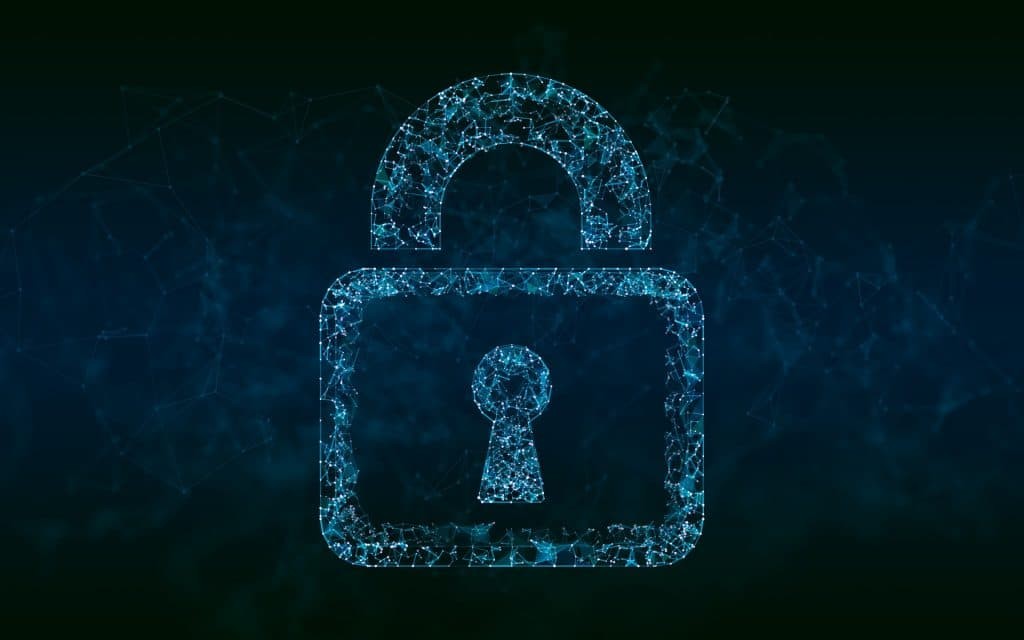The reason that cybersecurity jobs are so important is that there are a growing number of threats attacking people and business from all sides, at all times of day. Many threats focus on targeting ICA or integrity, confidentiality and availability. Let’s highlight some of the most well-known cyber threats and attacks before diving into cybersecurity jobs.
Types of Cybersecurity Threats
Phishing
In phishing, a hacker will try to trick you into willingly giving them your personal information. They might pretend to be your banking company and ask you for account details.
Spear Phishing
Spear phishing attacks are more specific. They will target a single person and use information about them to gain trust. They will research the victim ahead of time and find some personal information to gain credibility.
Man in the Middle Attack
In a man in the middle attack, the hacker will hijack the victim’s connection to the network. The hacker will swap IPs with the victim, so the network still believes the approved end-user is accessing the information.
Trojans
A trojan is a malware disguised as legitimate software. The victim’s computer will believe the program is trustworthy and download the file, subsequently giving the hacker free reign.
Denial or Distributed Denial of Service Attack
Distributed Denial of Service (DDoS) clogs up your network or server. The hacker sends a ton of information to your server at once, and the server will crash.
Ransomware
In ransomware, hackers will lock the victim out of their computer or device. They will be prompted to pay the hacker to regain access.
Malware
Malware is a general term for any malicious software. This includes spyware, viruses, trojan horses, keyloggers, and the sort.
Social Engineering
Social engineering uses psychology and human interaction to gain access to networks and systems. The attacker will try to manipulate the end-user into giving sensitive information.

Hacking
Hacking is the act of breaking into a network or system that you shouldn’t be in. Hackers will look to steal personal information from end-users.
Cross-Site Scripting
In cross-site scripting, the criminal will put a malicious link on an otherwise-normal website. The link will load malware onto the user’s computer and the website’s host is none the wiser.
DNS Spoofing
DNS spoofing is when a hacker makes a fake site that looks like a legitimate site to steal a user’s information.
Secure Sockets Layer Attack
A secure sockets layer attack is a way for cybercriminals to decrypt information sent and received on your device.
Types of Cyberattacks
There are many ways that hackers will try to steal data and information. These are called cyberattacks.
Drive-By Attack
In a drive-by attack, a cyber hacker will upload malicious code onto a website. When the victim visits the site, the code is unleashed.
Password Attack
In a password attack, a hacker will use password-cracking programs to break into a user’s account. A computer algorithm will quickly guess random combinations of passwords until it successfully gets into the user’s profile.
SQL Injection Attack
An SQL injection attack targets a business and takes sensitive backend information from them.
Eavesdropping Attack
An eavesdropping attack allows a hacker to access information sent or received from a user’s device by acting as an additional recipient of the data.
Birthday Attack
In a birthday attack, the hacker will use a statistical chance to intercept messages. They will decrypt one message by chance and then use the decryption key to access every other message sent and received.
What is Cybersecurity?
The best way to think about cybersecurity is by imagining that it’s a security guard for computer activities. Cybersecurity involves different technologies, programs, and ideas that protect people and companies.
Application Security
Application security is referencing the apps that can be downloaded on a smartphone or tablet. Most often, attacks on an app are aimed at stealing customer information.
Informational Security
Information technology security protects all physical and digital information. This includes information that’s in paper form, on the cloud or on a server.
Operational Security
Operational security, also called OPSEC, determines what information is critical and figures out ways to keep the information safe and controlled. OPSEC is often used to keep information away from competitors or enemies of nations.
Network Security
Network security is the act of keeping a network of computers safe. Most often, it’s a workplace that has multiple computers and servers linked up. The cybersecurity expert will make sure only the right people can access these networks.
Cybersecurity Training Options
There are several ways to receive your certificate or degree in the cybersecurity field. Typically employers don’t question the method you use to receive the training, simply whether you received it. Training is often among the cybersecurity job requirements for a position.
Online
An emerging way to train for cybersecurity is through online platforms. So many colleges and companies offer their courses directly online. The prevalence of online classes also leads to more remote cybersecurity jobs.
Most of the courses don’t have scheduled times for lectures – they upload content weekly and the student has the opportunity to learn at their own pace.
Offline
A more traditional method is to attend the course in-person. This is the conventional learning style offered at universities and different companies.
Self-Paced
Typically found in online courses, self-paced programs allow students to learn at a speed that works best for them. Content will be published and distributed at regular intervals, and the student has the interim to learn and study the content.
This might present itself as lectures and homework distributed every Monday. The student then has the week to learn and submit the work.
Real-Time
In a real-time setting, the instructor is teaching the course live, and students must follow along. This has a set structure and the student can spend their free time learning the content, which is taught at fixed times and dates.
Hybrid
A hybrid course is a combination of online and offline. The student may attend class in-person for quizzes, tests, and some lectures. The remaining content would be published online for them to learn at their own pace.

Cybersecurity Certifications
In many cases, jobs for cybersecurity will accept a certification. Due to the different paths you can take, there are many various cybersecurity certifications offered.
Certified Ethical Hacker (CEH)
A CEH is the idea of hiring a hacker to fortify a system. The CEH course will teach someone how to think like a hacker and understand the laws and standards involved. This cert plays nicely into a lot of different cybersecurity careers.
CompTIA Security+
A CompTIA Security+ is a must-have for entry-level cybersecurity jobs like Information Technology Security. It’s a general cert that doesn’t focus on any specific field, merely the general ideas of cybersecurity. It will teach the fundamentals of IT and build a strong foundation.
CompTIA Network+
Students will gain a general understanding of configuring, troubleshooting, and managing networks in the CompTIA Network + program. This course is favored for entry-level IT professionals.
Certified Information System Security Professional (CISSP)
The CISSP course is a general course that teaches a broad range of ideas. This is among the most coveted certifications in the cybersecurity field.
Certified Information Security Manager (CISM)
A CISM certification requires a minimum of 5 years’ experience just to apply. That being said, it’s one of the most desirable and respected certs that can be earned in this field. It’s a challenging course and the exam requires a lot of knowledge.
The course studies security programs development and cybersecurity management, among other ideas.
Certified Information Systems Auditor (CISA)
A CISA certification tests your ability to audit information. Most high-level IS audit jobs require this certification.
Licensed Penetration Tester (LPT)
The LPT certification tests your abilities to conduct a full blackbox penetration test. This is the capstone for penetration testers and the master-level course for affiliated careers.
NIST Cybersecurity Framework (NCSF)
The NCSF certification verifies whether or not someone has the skills to build, design, manage, and test a program using the National Institute of Standards of Technology (NIST) cybersecurity framework. This is a focused cert.
Certified Cloud Security Professional (CCSP)
The industry consensus is that standard security training doesn’t translate to performance on a cloud system. For that reason, a CCSP is required for careers that are heavily involved in working on the cloud.
Computer Hacking Forensic Investigator (CHFI)
A CHFI cert prepares someone to be a quasi-detective. It will help you to gather evidence and take your findings to a court of law.
Cisco Certified Network Associate Security (CCNA)
The CCNA certificate teaches the risks and vulnerabilities in a Cisco network. This specified certification prepares you to work on Cisco systems and gives you a much better understanding of how they operate.

Cybersecurity Degrees
Some employers may accept a certification to begin working for them. Other companies require a cybersecurity degree in a related field. Let’s discuss some of the different degrees that might usher you into a career in cybersecurity.
Types of Degrees
Computer and information sciences are among the fastest-growing degrees of the past five years. This is partly due to cyberattacks and partly due to our growing dependence on the digital world.
Due to the fast growth, you’ll find a lot of different degrees in this field. You’ll quickly see that a lot of cybersecurity degrees are general. Employers will rely more heavily on experience and certifications in specific disciplines.
Computer Science (CS)
A computer science degree will focus on overall software systems. This is a more general field that later branches into specific disciplines.
Overall, this degree can help someone transition into a long list of different cybersecurity careers.
Information Technology (IT)
An IT degree is often offered by the colleges’ engineering department. The courses will study the ability to use computers to store, collect, share, and protect information.
Similar to a CS degree, an IT degree can be used as a foundation for many different jobs.
Cybersecurity
In a cybersecurity degree, students will have exposure to courses that help them evaluate, identify, and defend against attacks. These attacks could be aimed at data, networks, or information systems.
Depending on the course, the students may also learn how to implement, design, and protect data using prevention methods.
Computer Information Systems (CIS)
A CIS degree will teach students how to look at an IT system and keep it up to date. This could involve courses offered from CS, IT, and cybersecurity degrees, as well.
Oftentimes, a CIS degree can lead to programming, analyst, and developer jobs.
Length of Training and Education
The length of training and education for a cybersecurity job depends on the desired route.
For example, someone can achieve an accelerated associate’s degree within 15 months. Alternatively, someone can spend over 10 years getting their Ph.D. and a slew of certs.
A standard trajectory is a four-year bachelor’s degree followed by working an entry-level position. After several years in the field, the person may opt for certs that typically take a few weeks to achieve.
Fastest-Growing Cybersecurity Jobs
Some of the fastest-growing cybersecurity jobs revolve around new threats and keeping companies safe from cyberattacks. The cybersecurity jobs outlook is favorable, especially in recent years. If you are interested in being on the cutting edge of cybersecurity, you should consider:
Security Architect
A security architect will build structures and systems to keep out cyber crime. They must have a deep understanding of the potential advanced persistent threats and the ability to keep the attackers at bay.
Security Analyst
The security analyst at a company will carry out security measures. Their goal is to protect the company’s systems, networks, and data. They perform continuous monitoring of the systems to see if there are any breaches or threats.
Security Software Developer
A security software developer puts together computer programs that are aimed at keeping the data and information safe. They will use the newest and most secure safeguards to protect the company and its customers.
This role needs to understand a lot of different aspects of cybersecurity to perform their duties.
Cryptanalyst
The cryptanalyst looks to undo the work of a cryptographer. They will try to decipher and decrypt codes and data. This profession might be an ethical hacker looking to test the encryption of a company’s data.
Security Engineer
A security engineer finds a threat and vulnerability in software or a system. They will then develop and implement a solution. They can be trusted to defend systems against different cyberattacks and threats. They can sometimes be an ethical hacker.
Security Administrator
A security administrator will be the focal point for a cybersecurity team. They are the person who troubleshoots, installs, configures, and administers security solutions. They can also be called on for writing policies and security training.
Cryptographer
A cryptographer secures communications and data. They will design ciphers, algorithms, and security measures to roll out general data protection regulation. Should a hacker get into a system or network, a cryptographer’s work will still protect the data by encrypting it.
Security Consultant
A security consultant is often a form of an ethical hacker. They will test and examine other securities put in place in a company. By finding the weaknesses, they can give suggestions to the client.
Penetration Tester
A penetration tester is essentially a hacker on the inside. Their primary role is to try to break into a company’s network. Their insight will show companies weak points that they can then reinforce. Penetration testers are typically focused on company networks.
Ethical Hacker
An ethical hacker is a general term that encompasses penetration testers. Ethical hackers will hack into information, networks, systems, clouds, and databases of different companies.
They will then communicate with the company where they can use improvement.
Chief Information Security Officer (CISO)
A CISO is an executive-level job. This role oversees all cybersecurity work at a given company. They are expected to understand different cybersecurity roles.
A Day in the Life of a Cybersecurity Professional
For most cybersecurity professionals, there is no typical day. You have to be prepared to face a new challenge every day and quickly think your way through problems.
Depending on your career path, you might even be exposed to problems that have no widely-known solution.
A professional will work upwards of 8+ hours a day. During the day, they will work on learning and understanding the technology and systems, solving problems, interfacing with clients, working on programming or coding, and meeting with different teams.
The important characteristic to have in any cybersecurity role is the ability to problem-solve and think your way to a solution. Due to the variability of your days, you can’t walk into the office knowing what you will encounter.
Importance of Teaching Cyberattack Prevention in the Workplace
For most companies, their employees are the weakest link in their line of defense. There are so many different cyberattacks that revolve around manipulating and tricking a person into giving access.
If the workplace doesn’t understand how to avoid and prevent a cyberattack, they can succumb to such attacks. The most robust and fortified system in the world cannot withstand an authorized end-user willingly giving over information or getting tricked.
By teaching the employees about phishing, malware detection, and what not to do, a company can protect itself even better.

Risks of Poor Cybersecurity
Like a sleeping security guard, poor cybersecurity will do nothing to protect a computer. A cyber threat can occur at any moment. Hackers and criminals can quickly get into the computer, system, or network and snoop around. They can take information that will ruin lives, destroy people’s finances, and blackmail people.
Poor cybersecurity is outdated and easily worked around. As time goes on, these security measures have to be re-visited and assessed. Cybersecurity has to upgrade and adapt with the times and as new cyberterror emerges.
Some threats to poor cybersecurity are ruined finances, relationships, and careers. A hacker can undo anything that can be done through your computer and on the internet.
Cybersecurity Best Practices
Some simple practices will keep you and the company safe. You don’t need to be working one of the jobs with cybersecurity to make a difference.
Keep your personal information safe and out of reach. Never give personal information to anyone who reaches out to you unless you can confirm their identity. Scammers and hackers will pose as high-ups at your company or other companies to steal your information.
When in doubt, don’t click it. You will encounter links, pop-ups, and emails that were created by hackers. The best practice is to never click a link unless you know and trust the person who sent it, and the link is legitimate.
Never use public Wi-Fi. Hackers can easily access devices that are on public Wi-Fi. They can target the information on your device and steal everything stored there.
Ask IT if there’s a question. If you’re ever in doubt, skeptical, or unsure – it’s always best to reach out to IT. The IT team has been trained to understand cyberthreats, and they can steer you away from danger. They have cybersecurity certifications or a cybersecurity degree that teaches them exactly how to help the company.



